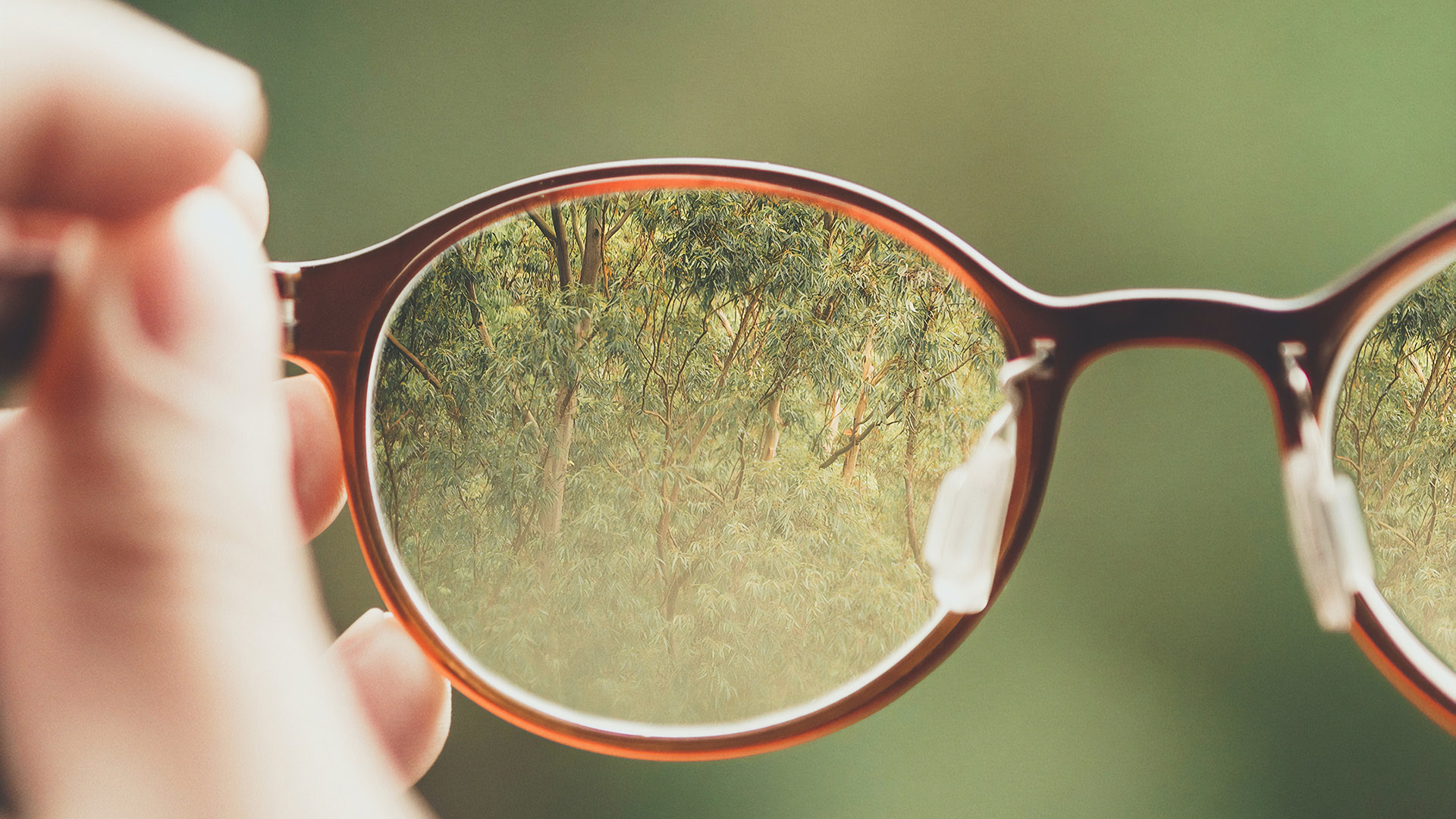It was 1970 and a new film called ‘Patton’ had just been released. My mum arranged for me to go and see it at the cinema in Leicester Square London, along with the two sons of our local GP, who I only knew vaguely. Why she thought I would be interested in a movie about an American general in WW2 was beyond my comprehension. I was highly suspicious she thought it would be an opportunity for me to meet some potentially suitable boyfriends! But I did as I was told.
I was a lot younger than those two boys, quite shy and horribly embarrassed by my milk-bottle top NHS glasses, and if I’m honest, a bit vain. So, I chose not to wear them for the outing, travelling in a myopic blur by train and then watching the film as fuzzy movements across the screen.
Being horribly short-sighted was a blessing on this occasion. All I remember of the film was it was very loud.
Why am I telling you this story?
Because our ability to see connects us to our surroundings and the people we are with.
It also allows us to perceive colour and movement and use our minds to interpret what we see.
And when viewing nature, it helps to maintain our health and wellbeing.
I have always had a deep affiliation to nature. From growing up in the Surrey countryside to travelling to remote desert areas in Australia and spending time with the mighty Redwoods in the U.S., I have always loved spending time outdoors engaging all my senses, principally using my vision (with glasses) to appreciate the natural beauty of my surroundings, in awe of different creatures, great and small, and of the different trees and flowers.
I was once asked whether it would be better to lose your sight or go deaf.
Both senses, of course, help us to navigate in the world safely.
But as someone who has always struggled to have good vision, for me it would be more important to retain my ability to see.
What would your answer be?
There’s something else too.
Viewing nature as therapy.
It was back in 1984 that Robert Ulrich published his paper on how being able to see greenery from your hospital window assisted a faster recovery from gall-bladder surgery, quicker discharge from hospital and a lower reliance on pain medication, compared to those left in a room overlooking a brick wall.
Seeing nature through a window lowers stress levels, blood pressure, heart rate and associated muscular tension.
In other words, seeing greenery even if you’re stuck indoors benefits your health and well-being, which is good news if you have limited access to outside.
Do you ever retreat to nature when you’re feeling stressed (or having your gallbladder removed)?
Healing Gardens.
Florence Nightingale was also a staunch believer in the therapeutic effect of gardens assisting not only the patients but also their visitors and staff.
Spending time looking at green (or blue) space is calming. It has been shown by research to improve sleep quality, alleviate symptoms of anxiety and depression and enhance cognition.
How do you use nature to enhance your own mental wellbeing?
Bringing nature inside.
As I do have the reputation of killing an indestructible rubber plant I had once as an indoor plant, you might not want to leave me in charge of your precious hot-house orchids while you go away on holiday, but even with my black thumb, I love having plants in the house, some herbs in pots, cut flowers, and wooden ornaments.
At home, we have pictures of Australian landscapes hanging on the walls and big windows to let in the natural light and views of our somewhat wild garden that we both love.
How do you bring nature into your home?
Make interaction with nature part of your daily routine.
What’s the first thing you do when you wake up in the morning?
Please don’t tell me it’s to look at your phone. Though, that is precisely what 79% of us do.
Taking a moment to open the curtains and to look outside floods your brain with natural light (which helps to wake you up) and whether your outlook is a garden or balcony with a couple of pot plants, you’re setting yourself up to feel calmer, less stressed and in a better mood.
What better way to start your day?
We have five senses available to us and vision is the one we use the most.
You get to choose what you spend your time looking at and we know how important spending time in nature is for our physical and mental wellbeing.
So, why not take a moment each day to ask,
“Do I really need to spend so much time looking at a screen?”
The 30 seconds, 2 minutes or hour you spend looking at nature will help you feel happier, calmer and more connected to the world around you.
How do you view nature?
I’d love to hear your thoughts.
Dr Jenny Brockis is a board-certified lifestyle medicine physician, keynote speaker, trainer and best-selling author. Her new book Thriving Mind: How to Cultivate a Good Life (Wiley) is available for purchase.
If psychological safety, burnout prevention and mental wellbeing is something you’d like to find out more about, please contact me to set up a time for a chat.


